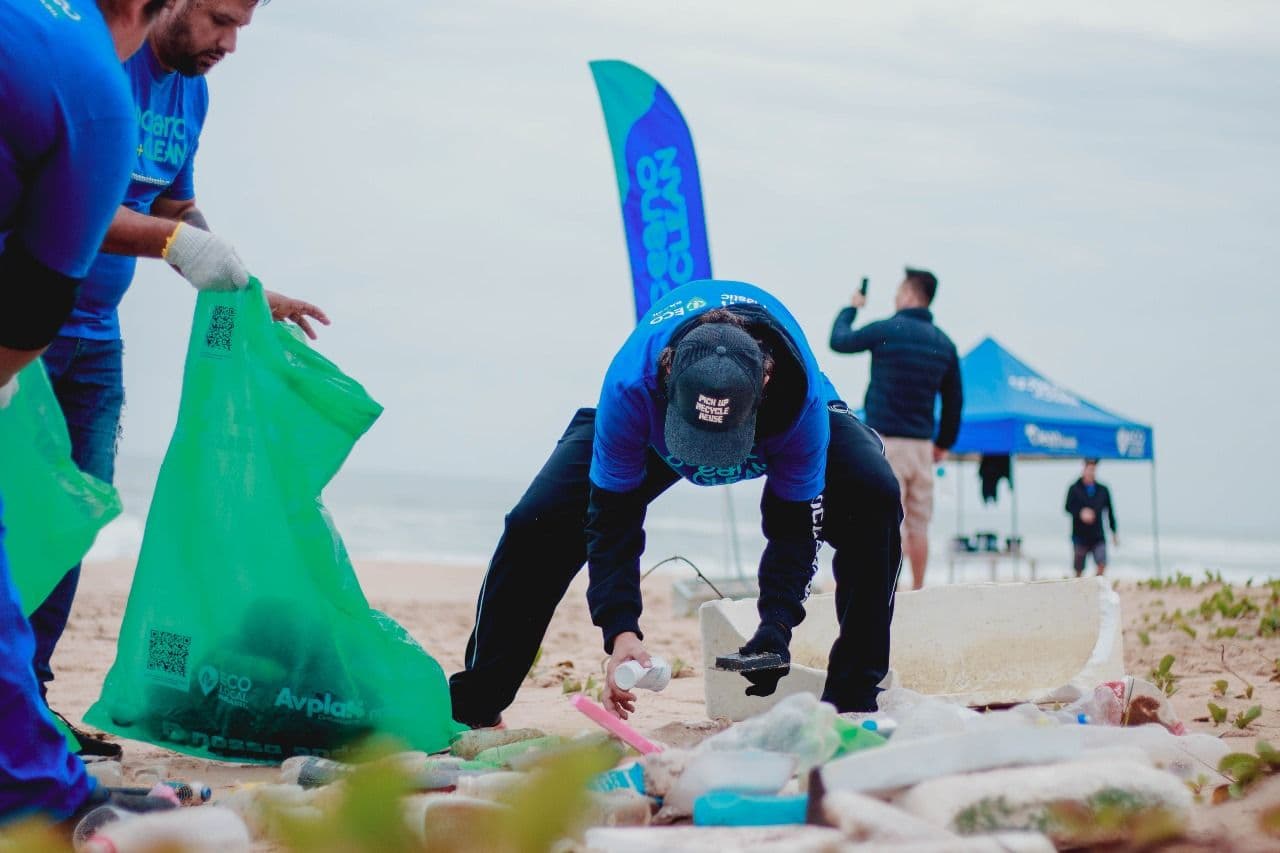
04/10/2024
Through the Circular Economy, project transforms discarded ocean plastic into products and opportunities
Learn more about the Oceano +Clean Project, an initiative that, since 2022, has combined ocean conservation with the Circular Economy. Each month, the project supplies between 25 and 35 tons of recycled plastic for various projects and products.
By Arlene Carvalho, from Movimento Circular
Did you know that every minute, a truckload of untreated waste is dumped into the oceans? According to United Nations (UN) data, this amounts to around 660 million tons per year of heavy metals, chemicals, electronic waste, and plastics, which make up 85% of this waste. That’s 50 kg of plastic per meter of coastline worldwide. If we look at Brazil alone, for example, with its coastline measuring about 7,600 km, this represents 382,000 tons of plastic dumped into the oceans annually.
Faced with this reality, Clean Plastic Group and Raposo Plásticos, partners of Movimento Circular, joined forces with the NGO Eco Local Brasil in 2022 to create the Oceano +Clean Project. This socio-environmental initiative aims to clean Brazilian beaches and protect marine life from pollution, while giving a new use to improperly discarded plastics.
“One of our directors at Clean Plastic Group and Raposo Plásticos saw a similar project at a fair and wanted to replicate the idea. Through research, we found the NGO Eco Local Brasil, which has been active in this field for over 20 years, and we invited them to implement this idea,” says Rafael Bringel, development manager at Clean Plastic Group and Raposo Plásticos.
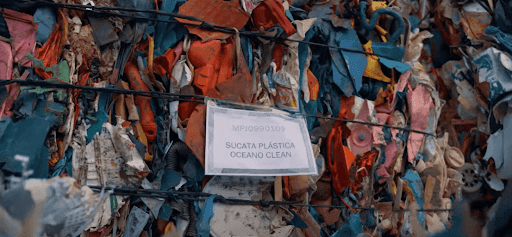
The project’s initial focus was on collecting and recycling plastic waste from beaches and coastal areas, with actions in states such as Santa Catarina, Paraná, and Rio de Janeiro. According to Bringel, there are already plans to expand to other regions of Brazil.
“We want to replicate this in beaches along the northeastern coast of Brazil. Initially, the plan is to expand to beaches like Mamanguape and Cabo in Pernambuco, and others in Ceará,” says the manager. “The plan is to extend the collection process to other regions and increase the volume of waste collected and removed from the environment. We want to make it known in different regions, not only in Brazil, so that other companies are inspired and carry out the same process, and thus, we’ll be sure that the project has succeeded.”
For Bringel, the project is seen as a way to offset the environmental damage caused by improper waste disposal. This connects the initiative directly to the principles of the Circular Economy.
“The project works by cleaning Brazilian beaches of the damage caused by waste that was improperly discarded in nature. This action presents a solution for these wastes to return to the recycling and transformation chain. With this, we prevent millions of animals from being affected and ensure cleaner beaches and oceans.”
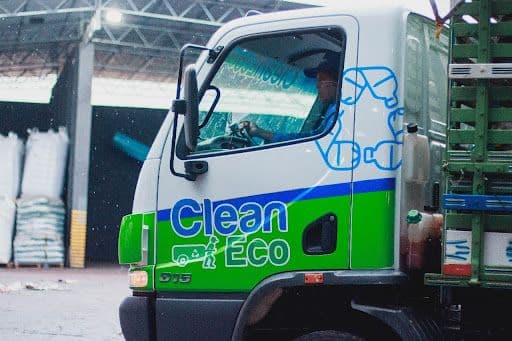
More numbers
In 2023, the initiative removed about 120 tons of waste from the sand in Santa Catarina and Paraná. Even if it’s not directly reused in the plastic industry, this waste can find a new purpose.
“What doesn’t turn into plastic can be transformed into other products, like park benches and bus stop platforms, developed by the NGO Eco Local Brasil itself. The important thing is that nothing goes back to waste,” explains Bringel.
One of the biggest challenges is collecting on-site, as well as correcting the properties of materials degraded by salt spray and UV rays. But how does the entire process work?
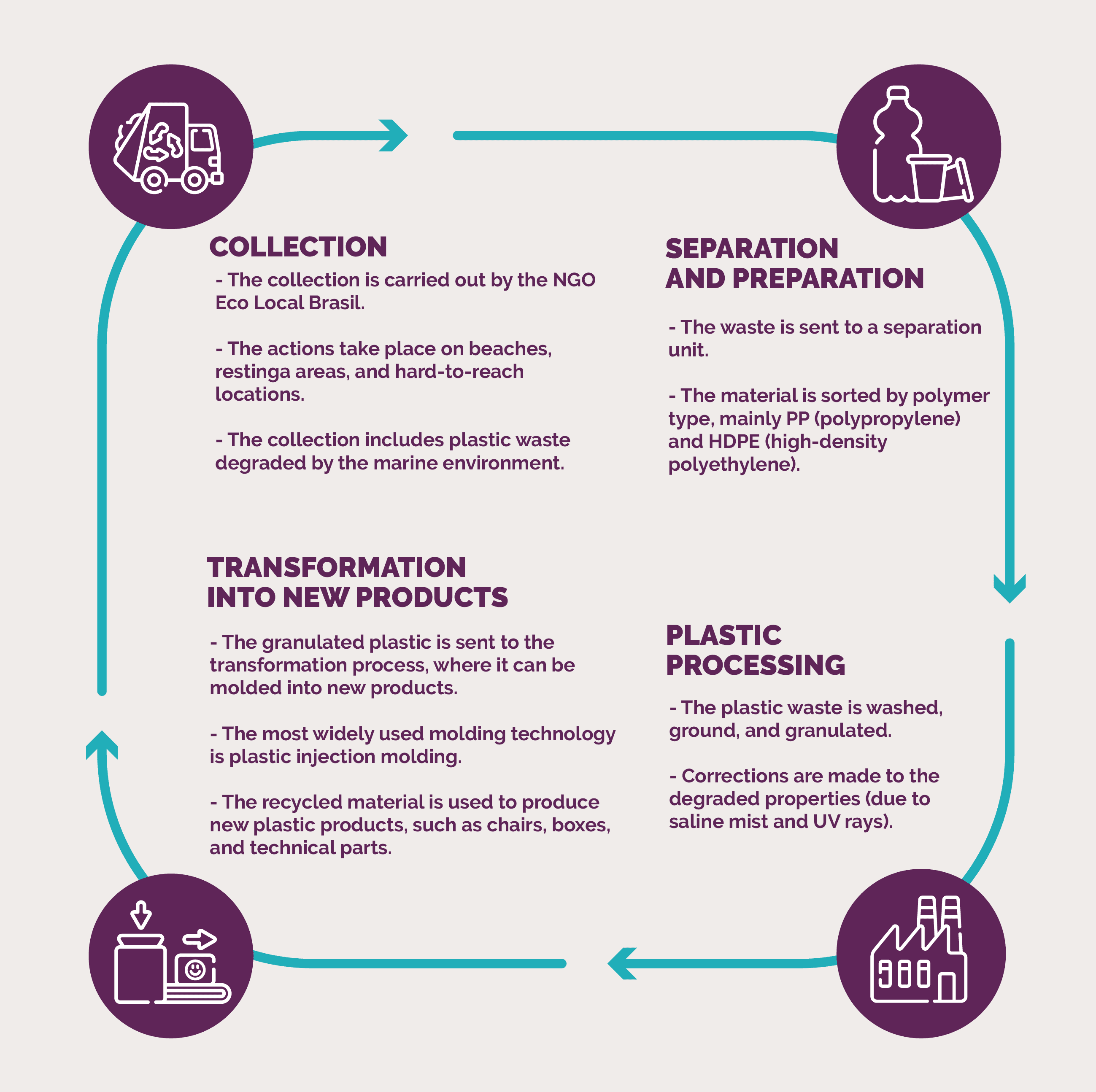
Tramontina and partnerships
The Oceano +Clean Project provides between 25 and 35 tons of recycled plastic per month for various projects and products. The material is used by cleaning product packaging companies and also by Tramontina, which has become the main partner of the Oceano +Clean Project.
“Tramontina has developed two chairs using plastic from the Oceano +Clean project. They reduce the carbon footprint of these products and also use the project’s seal. Our feedback has always been positive, and other clients and business partners are also applying to participate in beach cleanups with the Eco Local Brasil team. This only encourages us to advance the project further with this solution of conscious consumption,” Bringel highlights.
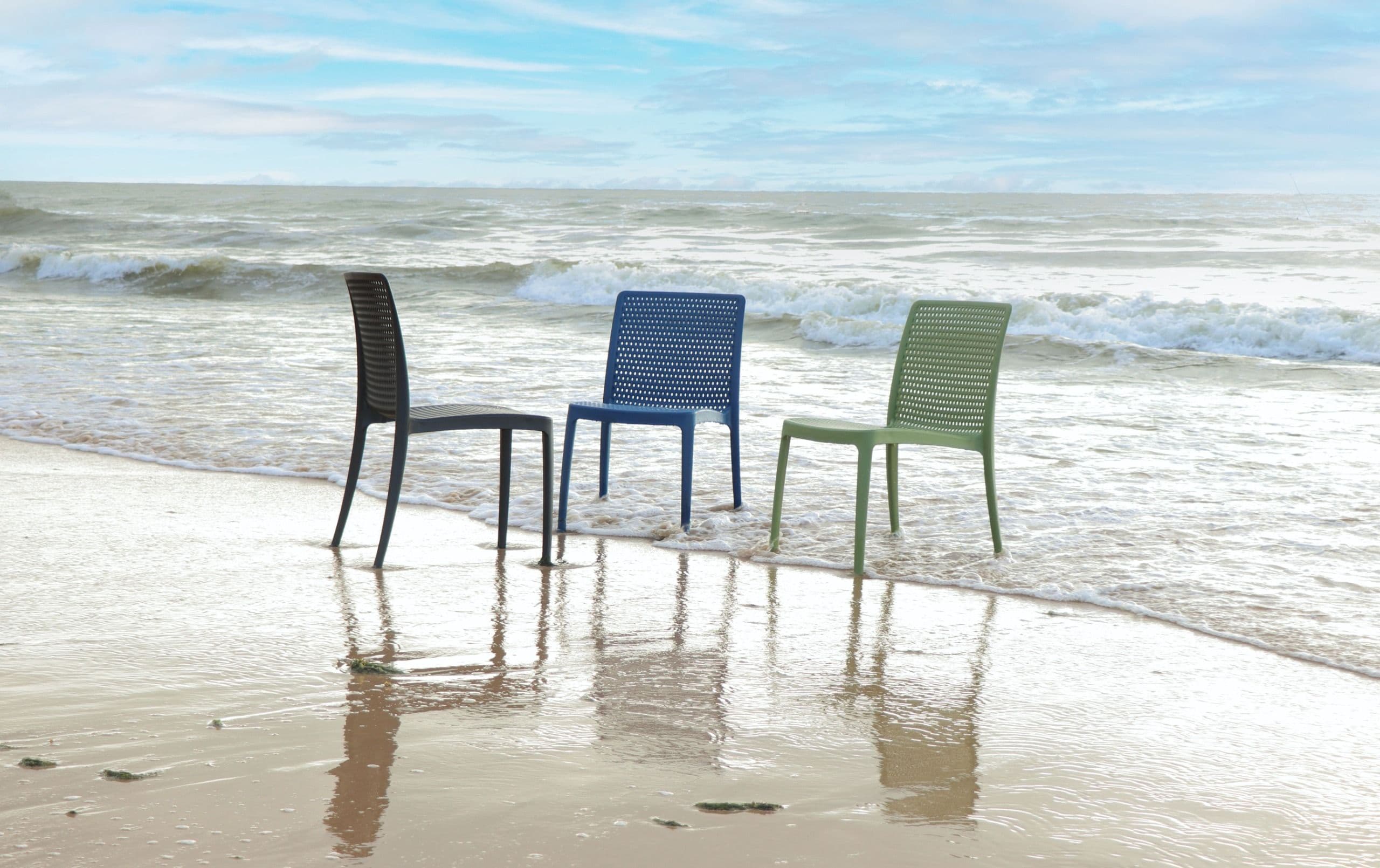
Finally, he emphasizes that initiatives like Oceano +Clean can change society’s perception of plastic waste, showing that it’s not garbage, but a valuable raw material for new products.
“Through initiatives like this, we can reduce the consumption of thermoplastic resins from fossil sources, consequently reduce energy consumption and greenhouse gas emissions, keep our beaches clean, and protect marine life. It’s a circular movement initiative aiming to achieve a more sustainable world,” he concludes.

